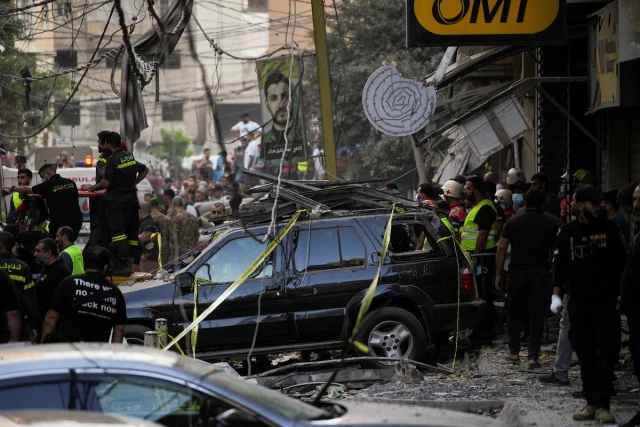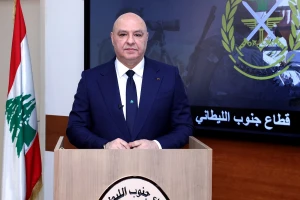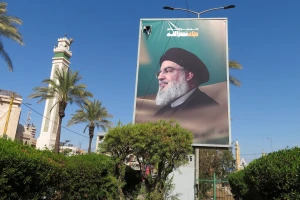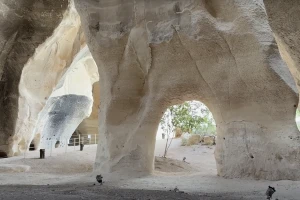Israel kills Hezbollah's No. 2 in Beirut airstrike after repeated attempts to rebuild terror infrastructure
Lebanese gov't condemns strike on veteran terror leader

An Israeli airstrike killed the chief of staff of the terror organization Hezbollah, Haytham Ali Tabatabai, in his seaside apartment in the Dahiyeh neighborhood of Lebanon’s capital, Beirut, on Sunday.
Prime Minister Benjamin Netanyahu’s office confirmed that the strike targeted Tabatabai, “who had been leading the terrorist organization's buildup and rearmament,” and noted the Prime Minister ordered the strike “upon the recommendation of the Defense Minister and the IDF Chief-of-Staff.”
IDF Chief Lt.-Gen. Eyal Zamir stated, “The strike was intended to prevent the organization from further strengthening its capabilities and to deliver a precise blow to those who attempt to harm the State of Israel.”
The IDF confirms killing Hezbollah's de facto military chief Haytham Ali Tabatabai in an airstrike in Beirut earlier today. pic.twitter.com/JFhLX499wK
— Emanuel (Mannie) Fabian (@manniefabian) November 23, 2025
“The IDF remains committed to the understandings agreed upon between the State of Israel and Lebanon, but we will not allow the Hezbollah terrorist organization to strengthen or rearm, and we will act to remove any threat to the civilians of the State of Israel.”
Tabatabai had been appointed by Secretary-General Naim Qassem to be the terror group’s chief of staff after most of its top ranks had been eliminated by Israel over the course of 2024. He then spearheaded the efforts to rebuild the group’s terror infrastructure and weapons stores, in violation of the ceasefire agreement.
According to an informed source, cited by i24 News, Israel conveyed a message to the ceasefire oversight committee after the strike, saying that from Israel’s perspective, “this is not an escalatory move – unless Hezbollah chooses to respond.”
Army Radio reported that instructions for Israeli villages and towns near the border remained unchanged after the strike.
As we reported more than two years ago, this was NOT Haytham Ali Tabatabai, but another member of Hezbollah's Radwan Force. Hezbollah published Tabatabai's identity earlier today. https://t.co/TxpKiV1OOZ pic.twitter.com/VKXAQTutHP
— Joe Truzman (@JoeTruzman) November 24, 2025
A security source also told the news outlet that the decision to attack Tabatabai was made spontaneously when the opportunity presented itself – only an hour before the strike. “At the moment we are still in an ‘enforcement logic’ – we have not changed our policy toward Hezbollah and continue to enforce the ceasefire,” the source said.
According to a senior U.S. official, cited by the Axios news outlet, Israel didn’t notify the U.S. in advance but informed it “immediately after the strike was carried out.”
Another official said that the United States was aware of Israel’s intention to further escalate strikes in Lebanon but did not know the potential timing, location or target.
Tabatabai has had a $5 million U.S. bounty on his head since 2016.
The strike that killed the Hezbollah leader was a rare instance of Israeli action in Beirut, as most of its operations have been focused on southern Lebanon since the start of the ceasefire.
Israel has escalated its airstrikes on Hezbollah targets in recent weeks, after identifying accelerated attempts to rebuild its capabilities despite the Lebanese government's efforts to disarm it.
🚨🚨🇮🇱🇱🇧 Breaking: Ali (Haysam) Tabatabai, Hezbollah’s number 2 and its de facto Chief of Staff has been eliminated. pic.twitter.com/1RfbCSRb3H
— Terror Alarm (@Terror_Alarm) November 23, 2025
A reporter with the French AFP said that projectiles hit the third and fourth floors of a nine-story building in the Haret Hreik area of the Dahiyeh district.
Lebanon’s health ministry reported an initial toll of one killed and 21 other people wounded in the strike.
Standing at the site of the attack, Hezbollah official Mahmud Qomati told reporters that the attack “crosses a new red line.” The group did not immediately release a statement about the strike.
However, Lebanon’s president and prime minister condemned the attack.
President Joseph Aoun said that strike on the nation's Independence Day was “yet another indication that [Israel] pays no heed to the repeated calls to halt its aggressions against Lebanon, rejects the implementation of international resolutions, and dismisses all efforts and initiatives put forward to put an end to the escalation and restore stability not only to Lebanon but to the entire region.”
Aoun further called on the international community to “shoulder its responsibility and intervene forcefully and seriously to stop the aggressions against Lebanon.”
Lebanese Prime Minister Nawaf Salam urged his countrymen to unite “behind the state and its institutions,” vowing to “continue to work through all political and diplomatic means with brotherly and friendly countries, to protect the Lebanese people, prevent any open escalation, and ensure the cessation of Israeli attacks and its withdrawal from our land, as well as the return of our prisoners.”
According to the Israel Defense Forces, Tabatabai was a “key operative and veteran in the terrorist organization.”
He was one of the last remaining veteran terrorists of the group and had survived several Israeli assassination attempts.
Tabatabai joined Hezbollah soon after its founding in the 1980s, and held a series of senior command posts, including the command of the group’s elite Radwan Force and being the head of its operations during the civil war in Syria.
During the war with Israel, he was first appointed commander of the group’s operations array and was responsible for consolidating the operational picture and force build-up.
When most of Hezbollah’s leadership was killed by Israeli strikes, he effectively took over the management of the fighting against Israel and was later officially appointed chief of staff.
Jason Brodsky, policy director for United Against Nuclear Iran, said, “Hezbollah was already reeling from losses in its military leadership. In fact, Naim Qassem, the current secretary-general, lacked military experience before assuming the post making him more dependent on remaining figures like Tabatabai, so this is a significant blow.”
According to Army Radio, Israel decided to eliminate Tabatabai after concluding he was "not a restraining factor within the organization – but rather the opposite: a figure who was pushing Hezbollah toward renewed military buildup and toward actions against Israel."
“Due to his connections and abilities, [Tabatabai] served as a significant source of knowledge and influence within Hezbollah,” the IDF affirmed.
“The IDF will act against efforts to rebuild and rearm the Hezbollah terrorist organization and will operate to remove any threat posed to Israeli civilians.”
Defense Minister Israel Katz reiterated in a statement, “We will continue to act forcefully to prevent any threat to the residents of the north and the State of Israel.”
“Whoever raises a hand against Israel – that hand will be cut off.”

The All Israel News Staff is a team of journalists in Israel.
You might also like to read this:











